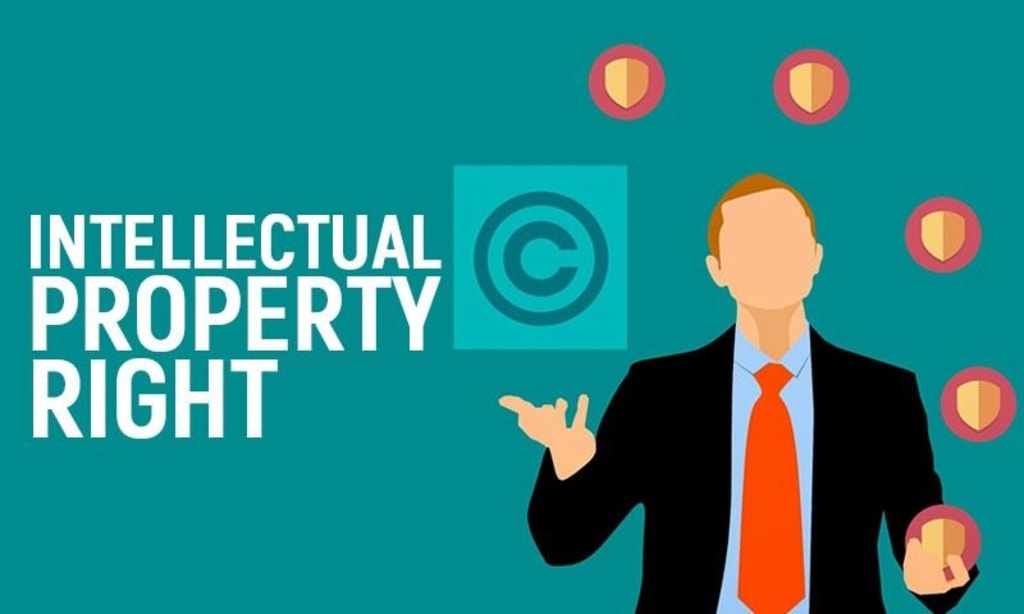
INTELLECTUAL PROPERTY RIGHTS
What does it mean?
The legal rights connected to inventions, designs, and some other creative works that result from original creative work or individual authorship are referred to as intellectual property rights in the technological environment.
Important things about it
1. Recognize What You Can and Cannot Protect: Acknowledging what is and is not covered by legal protection is the first step in understanding intellectual property. In general, rights to intellectual property protect works of art, literary and artistic creations, designs, symbols, names, and images used for purposes of commerce.
2. Protect Your Work: You must take the necessary steps to register your work with the relevant government organizations in order to protect your intellectual property. Registration may also include copyright, patent, trade secret, or trademark protections depending on the type of IP involved.
3. Respect for Other People's Intellectual Property: It's critical to respect other people's intellectual property rights in order to guarantee that your own IP rights are protected. This involves abstaining from appropriating or copying some other person's original content.
4. Educate Yourself: To effectively protect your intellectual property, you must have a thorough understanding of the rules and laws that apply to the different categories of IP. Additionally, you must also be completely aware of your commitments and rights with regard to your own intellectual property.
5. Think About Working with an Intellectual Property Lawyer: Consulting an intellectual property lawyer may be helpful if you're unsure how to safeguard your intellectual property. An IP defense lawyer can discuss the laws with you.
The best way to obtain intellectual property rights
1. Understand Intellectual Property (IP) Rights Before attempting to get intellectual property rights, it is important to understand what IP is and what rights it provides. Intellectual property is a legal concept that refers to creations of the mind, such as inventions, literary and artistic works, designs, symbols, names, and images used in commerce. Intellectual property rights protect the creators of these works from unauthorized use of their creations.
2. Research IP Laws It is important to research the applicable intellectual property laws in your country or region. Many countries have their own laws that relate to IP and will determine the types of protection available. It is also important to research international IP laws that may apply.
3. Consult a professional When attempting to obtain IP rights, it is strongly advised that you consult a licensed attorney or patent attorney for legal counsel. It can be helpful to have a professional lead you through the complicated process of registering and protecting IP.
4. Identify Your IP Registering your intellectual property with the appropriate government agency is the next step. You will then have the best protection possible as well as sole owner of the intellectual property. Depending on the type of intellectual property, this might entail filing for a patent.
Various forms of intellectual property rights:
1. Patents
2. Trademarks
3. Copyrights
4. Trade secrets
Merits:
1. Intellectual property rights (IPR) protect the rights of creators and innovators by providing them with a legal framework to safeguard their creations, inventions, and ideas.
2. IPRs enable creators and innovators to benefit financially from their work, as they can charge licensing fees, royalties, or other forms of compensation for using their work.
3. IPRs encourage innovation as they give creators and innovators the incentive to create and invent new products, services, and technologies, as they are assured that their work will be legally protected and they can financially benefit from it.
4. IPRs can help increase the competitiveness of businesses, as they can offer unique products or services that differentiate them from their competitors.
Demerits:
1. Intellectual property rights (IPR) can limit creativity and innovation by making it difficult for others to build upon or improve existing creations and inventions.
2. IPRs can make it difficult for small businesses to compete with larger businesses that have the resources to purchase or license patents and other forms of intellectual property.
3. IPRs can lead to the creation of monopolies, as large businesses can use their patents and other forms of intellectual.





Comments
There are no comments for this story
Be the first to respond and start the conversation.